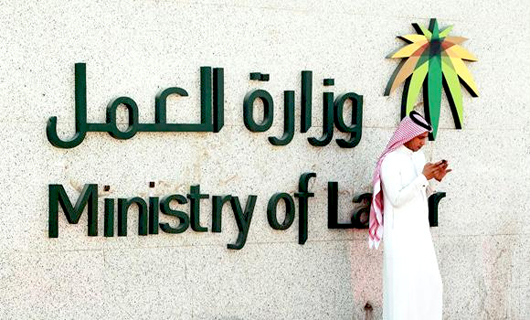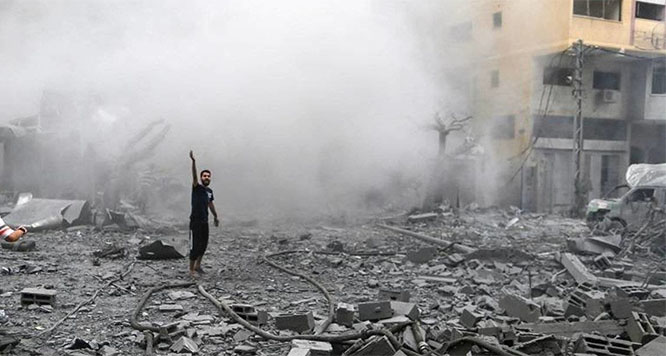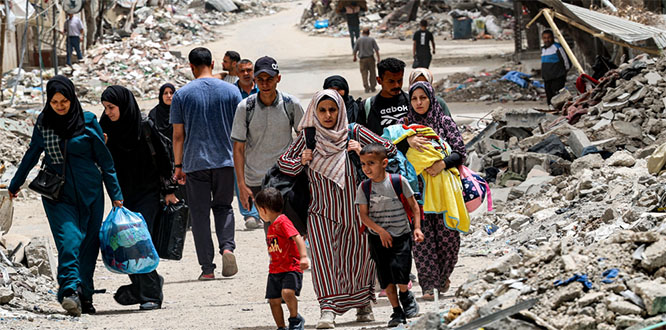Israeli military tanks have started to go deeper into the Jabalia refugee camp in northern Gaza as part of a ground offensive months after claiming Hamas had been “dismantled” in the area.
Israeli forces are “carpet-bombing” the eastern areas of Jabalia refugee camp in the northern Gaza Strip, killing and wounding several Palestinians, Al-Jazeara reported citing local sources on Sunday.
Israeli military tanks have advanced further into the Jabalia refugee camp, crossing Salah al-Din Street amidst ongoing battles with Hamas fighters, reports added.
Media quoted eyewitnesses as saying that the tanks are surrounding evacuation centers and residential buildings in the densely populated area, leading to mass evacuations and displacement towards the western part of Gaza City.
Also, Israeli drones targeted ambulances near the clinic run by the United Nations Relief and Works Agency for Palestine Refugees (UNRWA) in Jabalia, according to Mahmoud Basal, the spokesperson for the civil defense directorate in Gaza.
Basal stated that emergency crews in Rafah, al-Zaytounm, al-Sabra, and Jabalia have been inundated with distress calls, confirming that these areas were subjected to overnight bombardment.
Shortage of oxygen for patients
Imad Abu Zayda, an emergency doctor in Jabalia, warned of the critical conditions prevailing there due to the recent Israeli aggression in the area.
“No light due to the lack of fuel and there’s no medical supplement available as Israel has expanded their operation in the area. We have no oxygen to give to patients,” he said.
He added that the majority of those injured are children and women, and the medical team is grappling with limited resources to provide essential care.
All hospitals in the northern Gaza Strip are now out of service, following a warning from the UN about the risk of running out of fuel in hospitals across the region.
Israel’s closure of the Rafah crossing has also prevented aid trucks from entering the area since May 5.
The Jabalia refugee camp, established in 1948 to accommodate Palestinians who were displaced after the Nakba, or catastrophe, which refers to the ethnic cleansing of Palestine in 1948, has become the most densely populated refugee camp in the Gaza Strip.
With over 750,000 Palestinians forcefully displaced, this camp stands as a testament to the birth of Israel in 1948.
Since the start of the Israeli war on the Gaza Strip on October 7, Israeli forces carried out several attacks on Jabilia camp, leaving it in ruins by intense bombardment.
In early February, Israeli forces withdrew from the camp claiming it had destroyed Hamas as a fighting force in the northern areas.
On Saturday, the Israeli military ordered residents of the Jabalia Refugee Camp to evacuate “immediately”, as it prepares to launch military operations against Hamas.
However, the displaced residents have no place to seek refuge, as the UN reports a severe famine in the region.
Since the start of the offensive, the Tel Aviv regime has killed more than 34,971 Palestinians and injured more than 78,641 others, mostly women and children.









Comments
Add new comment